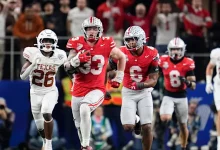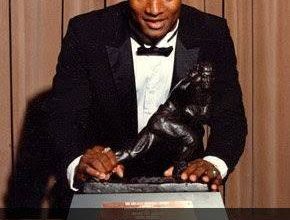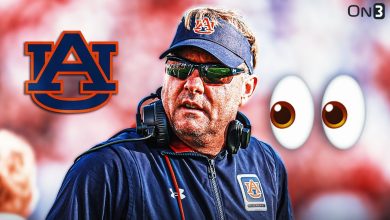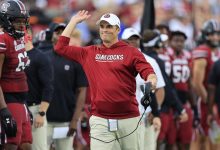Kentucky Football Feels Weight of Disappointing 2024 Season with Decreased Ticket Sales
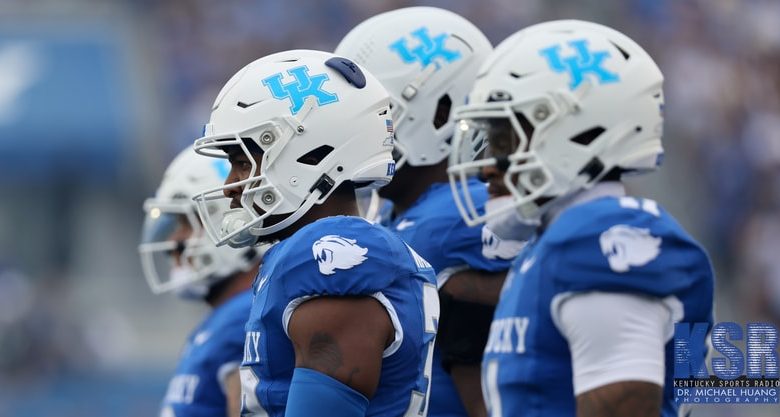
Kentucky Football Feels Weight of Disappointing 2024 Season with Decreased Ticket Sales
The effects of a disastrous season are felt in many ways for college programs and one of those ways that has reared its ugly head for the Kentucky Wildcats is in decreased ticket sales and renewals.
In college football, a poor season means more than just an inability to play a postseason.
The effects of a disastrous season are felt in many ways for college programs and one of those ways that has reared its ugly head for the Kentucky Wildcats is in decreased ticket sales and renewals.
Jon Hale of the Lexington Herald Leader reported that season ticket renewals and sales were down 12.7% from last season through the April 11 deadline for prior season ticket holders to renew their packages.
He would further go on to add that 75% of UK season ticket holders opted to renew their packages, a notable decrease from the 82-84% that had renewed their deals in the last three years.
While sales will continue through the Summer, Hale would go on to state that, as it stands, it is possible that Kentucky is tracking toward its lowest ticket sales total since 2021, in spite of the fact that there was no kind of price increase after the 2024 season.
While disappointing for Kentucky, the news is hardly a shock as social media is littered with fans and rivals alike poking fun at UK, criticizing Head Coach Mark Stoops and generally spreading pessimism about a 2025 season that comes with quite the daunting SEC schedule.
Kentucky is set to face off against Toledo (MAC), Ole Miss, Eastern Michigan (MAC), Texas, Tennessee, Florida and Tennessee Tech (FCS) at home, the games fans buying season tickets would be purchasing.
While games against the Rockets, Eagles and Golden Eagles should all be wins, they don’t do much to drive up fan excitement and none of the contests against SEC schools are guaranteed, with fans frustrated and tired of frequent home losses in recent years.
Looking at those teams in depth, Texas is coming off a College Football Playoff appearance along with Tennessee, Ole Miss was just on the cusp of the Playoffs last season and likely would have gone had it not been for a poor loss to… Kentucky and Florida blew out the Wildcats by 28 last season, scoring nearly 50.
Still, the games are played for a reason and the Wildcats could make a massive splash and return to bowl play and even, with the games on the roster, sneak into the College Football Playoffs, but if season ticket renewals and sales are anything to go off of, the fan base has little faith in that happening.
Kentucky will kick off its 2025 schedule on Saturday, August 30, against the Toledo Rockets from Kroger Field in Lexington. The kickoff time for the game is TBD.
The Kentucky football program, long positioned as a proud but historically mid-tier team within the SEC, is currently grappling with the fallout of a disappointing 2024 season, which has manifestly impacted various facets of the program’s operations—most notably, a significant decline in ticket sales. This downturn not only reflects immediate financial and fan engagement concerns but also signals deeper challenges related to team performance, fan loyalty, recruiting prospects, and the overall perception of Kentucky football’s trajectory. Analyzing the causes and implications of this decline requires a comprehensive understanding of Kentucky’s football history, recent performance trends, fan sentiment, economic factors, and the broader landscape of college football fandom in the current era.
### 1. Context: Kentucky Football’s History and Expectations
Kentucky football has historically occupied a peripheral but respected position within the SEC, a conference renowned for its football powerhouses. The Wildcats have experienced sporadic success—most notably the 1977 and 2007 seasons, bowl appearances, and periods of competitive play—but rarely achieved sustained national prominence or SEC dominance. This reality has shaped fan expectations: Kentucky fans generally hope for competitive teams, bowl eligibility, and regional pride rather than national championships.
In recent years, Kentucky’s football program has experienced some ups and downs, with notable moments like the 2018 Citrus Bowl victory under coach Mark Stoops and a generally competitive SEC presence. However, expectations have often been tempered by the program’s limited resources, recruiting challenges, and the stiff competition within the SEC. The 2024 season, however, has been a stark departure from these hopes, with the team underperforming relative to preseason projections and fan optimism.
### 2. The 2024 Season: A Disappointing Campaign
The 2024 Kentucky football season was marked by a series of setbacks—poor on-field performance, key injuries, and coaching inconsistencies—that culminated in a record that disappointed fans and stakeholders alike.
– **Performance Metrics**: The Wildcats finished with a losing record, failing to qualify for a bowl game, which is often seen as a minimum benchmark for SEC programs of Kentucky’s stature. The team struggled offensively, with inconsistent quarterback play and difficulty moving the ball against conference opponents. Defensively, lapses and injuries hampered the unit’s ability to contain high-powered offenses.
– **Key Games and Fan Discontent**: Losses to rivals and conference foes by substantial margins, coupled with unimpressive performances, eroded confidence and enthusiasm. The home games, once lively with passionate fans, saw reduced attendance and waning crowd engagement.
– **Coaching and Player Development**: Questions arose about coaching strategies, game-day adjustments, and the ability to develop young talent. The coaching staff faced criticism for perceived stagnation and failure to motivate or maximize player potential.
This combination of factors not only affected team morale but also had a ripple effect on fan engagement and financial support.
### 3. Decline in Ticket Sales: Causes and Consequences
The most immediate and visible consequence of the disappointing season has been a marked decrease in ticket sales, which critically impacts revenue, stadium atmosphere, and the overall perception of the program.
#### a. Fan Disillusionment and Trust Erosion
Fans are the lifeblood of college football programs, providing revenue, atmosphere, and an intangible sense of community. When a team underperforms, especially over multiple seasons, fan trust and enthusiasm wane.
– **Loss of Confidence**: After a season marred by losses and underachievement, many fans feel disillusioned. They may question the coaching decisions, the team’s future prospects, or the commitment of the program’s administration.
– **Attendance as a Reflection of Sentiment**: Stadium attendance figures serve as a barometer of fan sentiment. Kentucky’s home games in 2024 saw attendance drop significantly compared to previous years, with some games drawing only a fraction of the stadium’s capacity.
– **Behavioral Changes**: Longtime supporters may opt out of attending games altogether, citing dissatisfaction, cost concerns, or logistical issues. Casual fans and students may also disengage, further reducing ticket sales.
#### b. Financial Impacts
Decreased ticket sales directly impact revenue streams essential for maintaining competitive facilities, funding recruiting efforts, and investing in player development.
– **Revenue Loss**: With fewer tickets sold, the program faces revenue shortfalls, which can constrain budget allocations for coaching salaries, facilities upgrades, and other operational needs.
– **Sponsorship and Advertising**: A decline in attendance diminishes the appeal for sponsors and advertisers, who seek visibility during large crowds. This can lead to reduced sponsorship deals and lower overall revenue.
– **Budget Constraints**: Financial pressures may lead to cutbacks in recruiting budgets, player support services, or staff salaries, further impacting team performance and recruitment.
#### c. Fan Engagement and Community Impact
Ticket sales are also a measure of communal engagement. When attendance drops, the sense of community and school spirit can weaken.
– **Stadium Atmosphere**: A less energetic, less crowded stadium diminishes home-field advantage and affects players’ morale.
– **Recruiting Challenges**: High school prospects often consider game-day atmosphere and fan support when making decisions. Reduced attendance and enthusiasm can make Kentucky less attractive to recruits.
### 4. Broader Factors Contributing to Declining Ticket Sales
While the immediate cause is the poor 2024 season, several broader factors influence fan purchasing behavior and engagement.
#### a. Evolving College Football Fan Culture
College football’s landscape has shifted considerably over the past decade, driven by technological changes and changing fan habits.
– **Media Consumption**: Fans increasingly consume games through streaming, social media, and highlight reels, reducing the perceived importance of attending games in person.
– **Cost of Attendance**: Ticket prices have risen, and ancillary costs (parking, concessions, merchandise) add to the financial burden, discouraging casual attendance.
– **Scheduling and Game Times**: Early-season games or those scheduled on weekdays or during student breaks may see lower attendance, especially if the team is underperforming.
#### b. Competition from Other Entertainment Options
In an era with numerous entertainment choices—video games, social media, streaming services—college football games compete for attention and discretionary spending.
– **Impact on Attendance**: Fans who might have previously attended games may opt for at-home viewing or alternative entertainment, especially if the team is not exciting or winning.
#### c. External Economic Factors
Broader economic conditions, such as inflation and economic uncertainty, can influence discretionary spending.
– **Cost of Living**: In times of economic hardship, families and students prioritize essential expenses, reducing spending on tickets and game-day experiences.
– **Local Economy**: The economic health of Lexington and the surrounding region affects fan attendance, especially for lower-income fans or students.
### 5. Impact on Recruiting and Program Development
Reduced ticket sales and declining fan enthusiasm have long-term implications for Kentucky football’s growth and competitiveness.
#### a. Recruiting Challenges
Prospective recruits often consider the energy of a program, including stadium atmosphere, fan support, and media profile.
– **Perceived Decline**: A drop in attendance can signal to recruits that the program is in decline, making it less attractive compared to more successful or stable programs.
– **Financial Constraints**: Lower revenue hampers the program’s ability to offer competitive scholarships, facilities, and support systems that attract top talent.
#### b. Program Morale and Stability
A decline in fan support can affect coaching staff morale, leading to potential staff turnover or hesitance in making long-term investments.
– **Institutional Support**: University leadership may scrutinize football investments more carefully, potentially limiting future funding or strategic initiatives.
### 6. Strategies to Address the Decline
Kentucky’s administration and coaching staff are likely evaluating strategies to reverse the attendance decline and rebuild enthusiasm.
– **On-Field Success**: The most direct way to boost ticket sales is to field a competitive, exciting team that fans want to support.
– **Engagement Initiatives**: Increasing fan engagement through community outreach, promotional events, and enhanced game-day experiences can help rebuild loyalty.
– **Facilities and Amenities**: Investing in stadium upgrades, fan zones, and hospitality options can make attending games more appealing.
– **Pricing Strategies**: Offering flexible ticket packages, discounts, or loyalty programs can help attract hesitant fans.
– **Media and Outreach**: Amplifying media presence and highlighting the team’s efforts and player stories can generate renewed interest.
### 7. Long-Term Outlook
While the current decline in ticket sales is concerning, it is not necessarily irreversible. Many programs experience cyclical downturns, often driven by on-field performance and external factors.
– **Building a Competitive Team**: Success on the field remains the most effective catalyst for increasing attendance and fan enthusiasm.
– **Consistency and Engagement**: Long-term strategic investments in coaching, facilities, and community outreach can foster a more dedicated fan base.
– **Adapting to Changing Fan Habits**: Embracing digital engagement, social media, and innovative experiences can attract younger generations.
The weight of Kentucky football’s disappointing 2024 season manifests starkly in the decline of ticket sales, highlighting the intrinsic link between team performance, fan engagement, and financial health. This decline underscores the challenges faced by programs that rely heavily on fan support and in-stadium attendance to sustain growth and competitiveness. Addressing these challenges requires a multifaceted approach—improving on-field success, enhancing fan experience, investing in facilities, and adopting innovative engagement strategies. While current circumstances are challenging, with strategic focus and committed leadership, Kentucky football can work toward restoring its appeal, rebuilding its fan base, and positioning itself for future success in the fiercely competitive SEC landscape.


